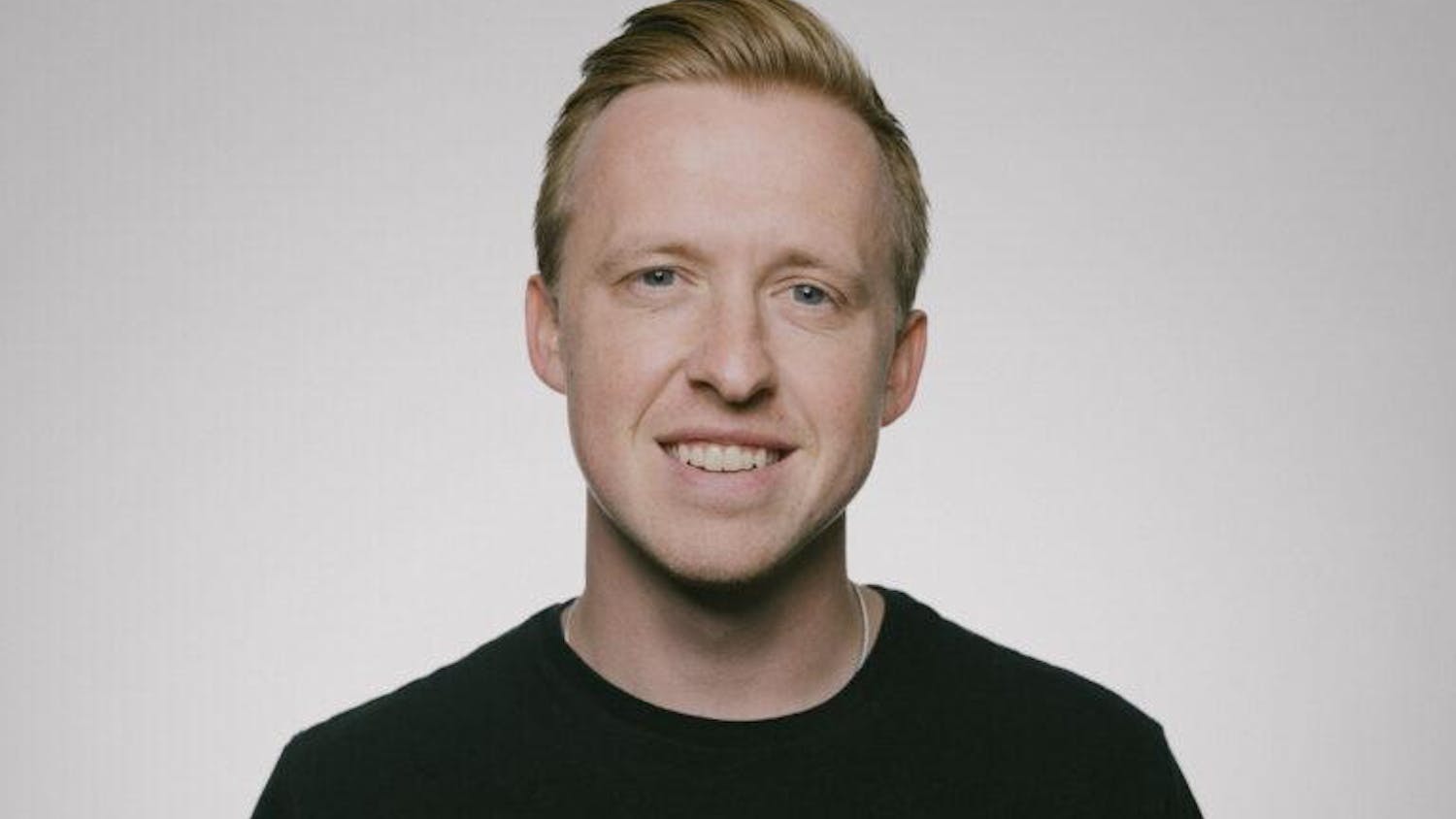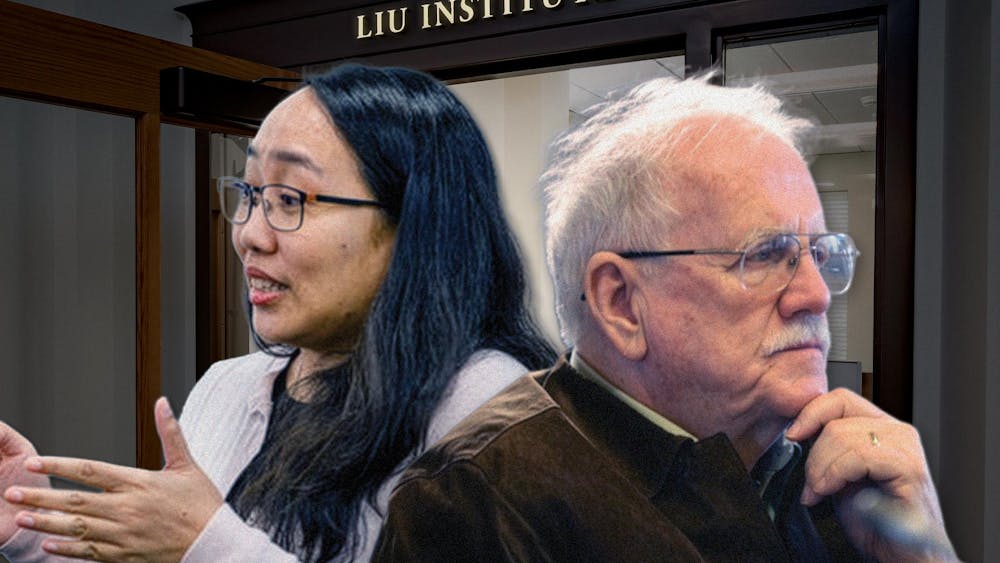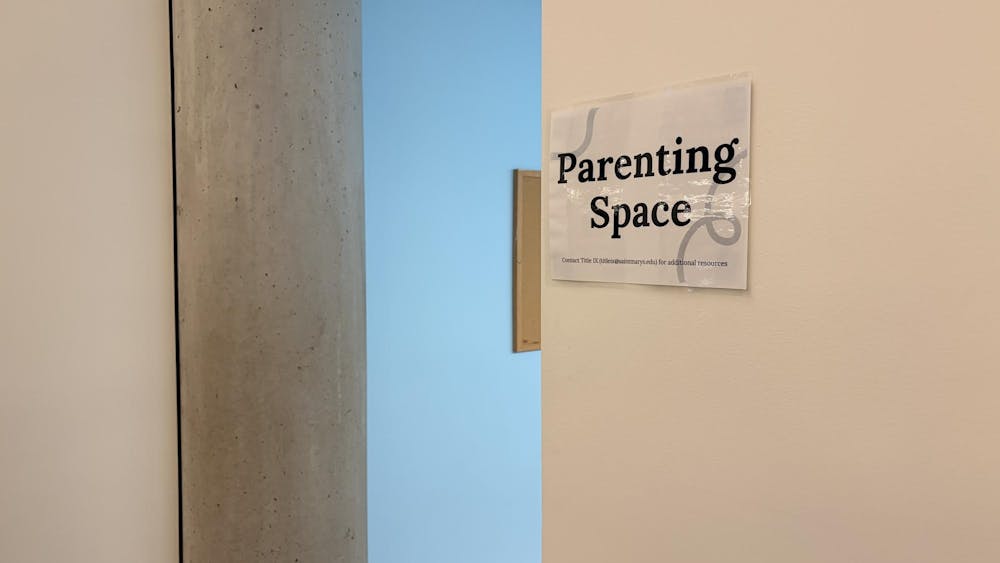Take a photo. Photoshop. Upload to Facebook.
The steps sound simple, but Notre Dame professors said more thought goes into the process than most people realize.
Jessica Collett, assistant professor of sociology, said we are much more "intentional" in our online interactions with others.
"It's not that we want to put up an image of ourselves that is untrue or inaccurate," Collett said. "[But people] are going to look for clues about who you are. Because we only have that split second, that first impression … we're going to choose pieces of information to put up there that we think reflect who we really are."
As a result, the effects of Facebook can extend far beyond online profiles and into people's lives and relationships.
She said others will often treat us according to the image of ourselves we present on Facebook. In turn, we act according to how we are treated.
"If we have a preconceived notion about somebody, then we'll interpret any kind of information in ways that support that [notion]," she said.
Collett said Facebook also prompts us to define and categorize ourselves based on our interests.
"Facebook is really about us putting forth our identities," she said. "That when we say that we like a particular [TV] show, we're not just trying to say that ‘This is what I watch,' we're saying something about … the kind of person we are."
Susan Blum, a professor of anthropology who has studied the effects of new media on the "self" for the past decade, said Facebookcan function to prove or validate occurrences in our lives.
"People are very aware of the way they're being seen," she said. "I've heard people say, ‘Oh, wait until I post this on Facebook.' So as they're acting, they're simultaneously conscious of the fact that their real-life action will become almost ‘realer' when it's posted."
Dangers to identity
Blum said one of the potential downsides to using Facebook, or any similar social media site, is that it causes people to perform an exaggerated identity that may or may not be real.
"I think there's plenty of motivation to do that in our lives anyway, and so Facebook increases that tendency," she said.
Collett said these exaggerations of identity can trigger anxiety as relationships transition from the digital world to the real world.
"Sometimes you can believe that what you're presenting isn't accurate … maybe you choose your most flattering picture, and then you meet people who maybe you haven't even met in person yet, and then there's just this stress [of] living up to expectations," she said.
Facebook use also becomes risky, Collett said, when digital identities are too calculated.
"I think it can be dangerous … if people get too caught up in the way that they're presenting themselves, and don't have a space where they feel like they can be their authentic selves," she said.
Blum said she questions whether online interaction makes face-to-face interaction even more "scary" than it already is.
"Facebook, you can control because you do it at your own pace. You can almost post something, and change your mind," she said. "In speaking, there's all this sort of uncontrollable stuff that happens, which is why human speech is so powerful."
But Blum said interactions on social networking sites can actually augment real life interactions.
"There's been what sociologists call ‘moral panic' about social media, [concern about] the fact that people are more comfortable interacting digitally than they are face to face," she said. "But there was a recent study from the Pew [Research] Center [that shows] the more active people are in social media, the more real life interactions they have as well."
Public sphere
Anita Kelly, a professor of psychology who has researched the effects of public versus private self-representation, said what we choose to say publicly has a much greater impact on our identity than what we say privately.
She said the public nature of Facebook is what makes it so influential.
"To the extent that Facebook is more public, it has great potential to help or harm that identity," she said. "Once you think others have this view of yourself, you feel you have to behave in a way that [confirms] those views."
Collett said that on Facebook, we must live up to a multitude of identities because different "types" of friends see us in different ways.
"You have this clash of worlds … and it can incite drama," Collett said. "So, it's not just your Notre Dame friends, but it's your high school friends … and it's your friends from back home and it's your grandmother and your aunt."
The question is, who will see that wall post or status update?
Blum said college students usually think of their intended audience as their peers despite having a wide range of Facebook friends.
"You're creating a persona, as we do all the time in our real life, but you have time to create it and you're aware of all the eyes that will be seeing it," Blum said. "Although if you have 1,000 friends, that's a lot of eyes."
Kelly said people should be more aware of just how much Facebook profiles impact the way others view us.
"People should be more careful," Kelly said. "There's a mentality of ‘it doesn't matter what people think,' but no one [really] believes that," she said.
She said negative images posted on Facebook can be forgotten, but not if they are vivid.
"People remember things that are prototypes of a broader category, [for example] dancing on a tabletop without clothes, that fits the prototype of wildness," she said. "It's hard to undo that."
Past, present and future
Blum said the extent of the cyber footprint we leave on Facebook is striking.
"There's a sort of a digital self that's out there, and even though Facebook only started seven or eight years ago, it's going to predate itself [for example] by finding our baby pictures that people have posted, so pretty soon our whole life and biography will be digitally mapped," she said.
She said psychologists and sociologists have conducted extensive research on the way Facebook affects identity, but the enormous amount of data Facebook houses is used in other settings as well.
"It's an interesting idea that there is all this data out there … which is somewhat terrifying," Blum said. "And Facebook, like Google, can analyze it and organize it with no volition on our part, no intention on our part."
Collett said the new Facebook Timeline profile, which offers users the opportunity to sort and highlight life events chronologically, also makes it easier for users to look back on the past.
And sometimes, looking back on the past lies outside our comfort zones.
"We like to be selective about what it is that we remember, in the same way that we like to be selective about what it is we put forth [on Facebook]," Collett said. "I do think the Timeline is about people suddenly feeling, ‘Oh my goodness, am I defined by this page?'"
But regardless of how Facebook is formatted, Collett said the site still reflects our identity in much the same way.
"[People] are reacting against the fact that [Timeline] feels like it's defining your life for you, but ultimately actually that's what we've been doing for a long time," she said. "I would argue that for a long time Facebook has been representing who we are, as far as our identities go."









